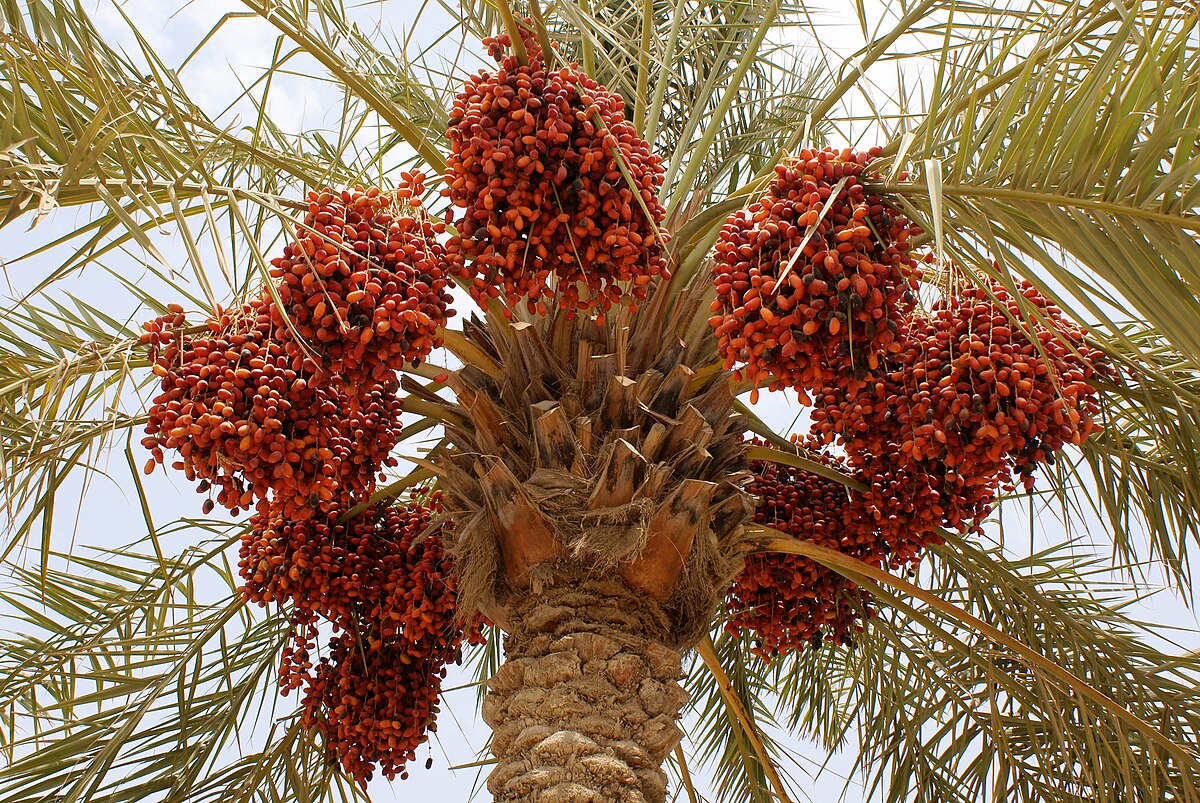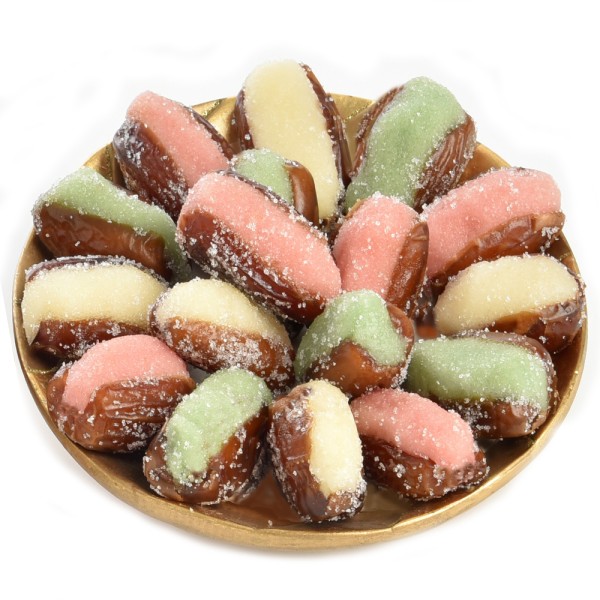Harvesting season for dates (a symbolic fruit in Moroccan & Islamic culture)
We all love to eat luscious plump dates. They are rich in fibre, vitamins and minerals, and keep for months without refrigeration. Dates are the fruit of a desert palm tree that has been cultivated for a very long time. Harvesting takes place from October to November. Morocco’s date season is even marked by an annual event which is « the Festival of Dates ». The harvesters usually carry out the dates by hand as the fruit is best when it ripens on the tree.
“Thinning” is another harvesting method which is done two or three times a week. The workers shake the fruit bag so that ripe dates will fall into a large basket below. Dates have a sacred significance in Morocco. Moroccans break the fast with dates following the instruction of the prophet Mohamed. Indeed, the prophet used to break the fast with them during Ramadan.

One of the finest of the world:
The tree of life
Liz Hoggard
Journalist and author


